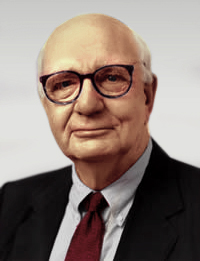A Quote by Calvin Trillin
Since nostaglia is fueled by inflation, could it be that inflation is the result of a conspiracy by the people who are trying to palm off McGovern buttons and Howdy Doody puppets and their Aunt Thelma's toaster as antiques.
Related Quotes
The unique aspect of today's monetary inflation is that it is not limited to one country, but a host of countries are all inflating together. As a result of the monetary inflation (when all of the newly created money begins to leave the banks and enter the system), the price inflation will be worldwide.
It’s hard to build models of inflation that don't lead to a multiverse. It’s not impossible, so I think there’s still certainly research that needs to be done. But most models of inflation do lead to a multiverse, and evidence for inflation will be pushing us in the direction of taking [the idea of a] multiverse seriously.




































